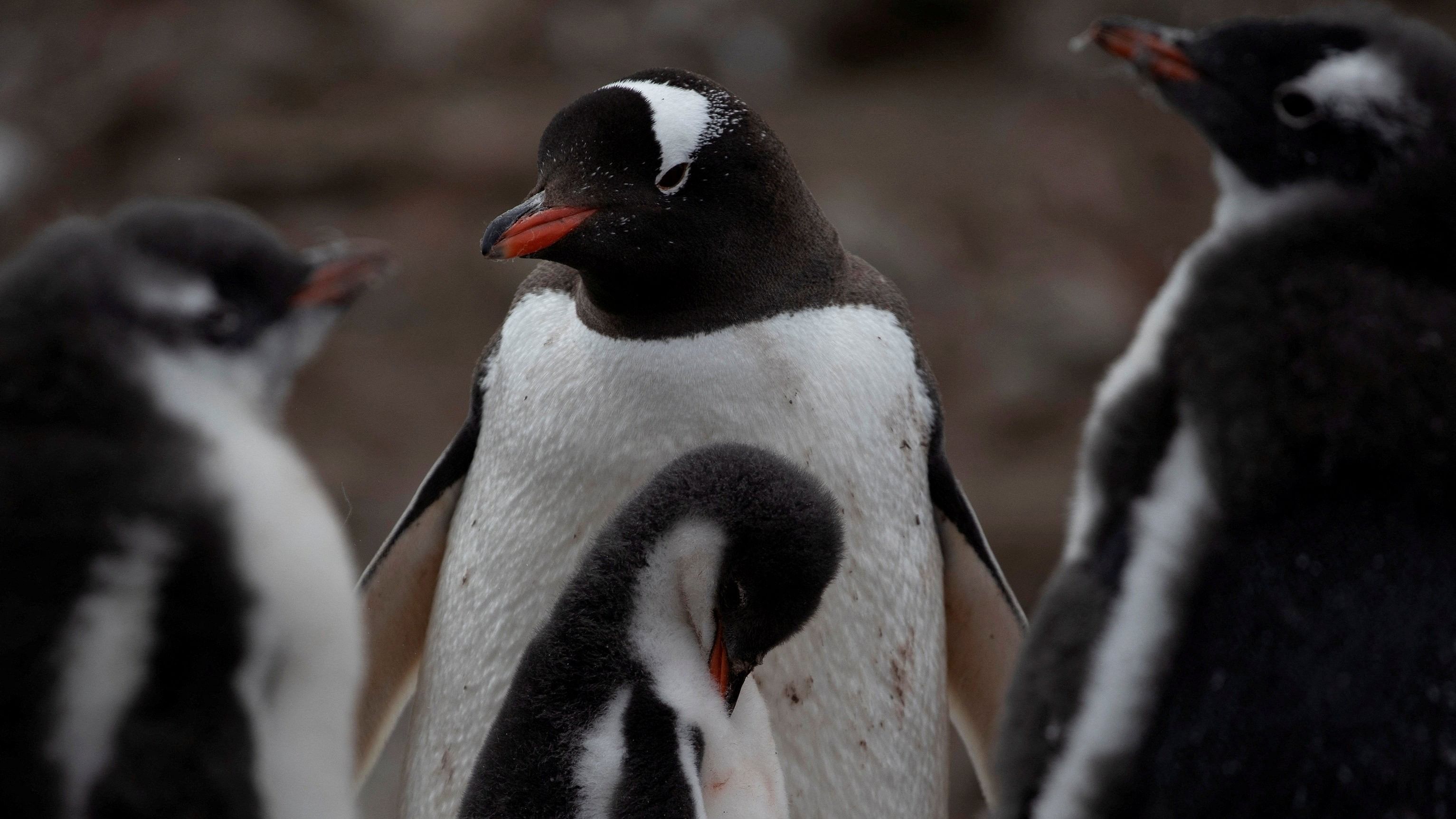
A colony of penguins stand on Snow Island, Antarctica.
Credit: Reuters File Photo
Panaji: Research by scientists from different organisations including the CSIR-National Institute of Oceanography here has confirmed the presence of microplastics in the gastrointestinal tracts of Adelie Penguin in Antarctica, hinting at the "impending emergence of microplastic hotspots" in Antarctic ecosystems.
The study, published in the "Science of the Total Environment" journal last week, claimed to be the first comprehensive examination of microplastics across various tissue types, gastrointestinal tracts and scat samples obtained from Adelie Penguins inhabiting mainland Antarctica.
The research was conducted by a team of scientists including Mahua Saha, Shrayan Bhattacharjee, Chayanika Rathore, Akshata Naik, Praveen Tudu, Prabir Ghosh Dastidar, Subarna Bhattacharyya, Jacob de Boer and Punarbasu Chaudhuri from research institutes including CSIR-NIO, University of Calcutta, Ramakrishna Mission Vivekananda Centenary College (Autonomous), Academy of Scientific and Innovative Research (AcSIR), SGT University, Polar Science Division of the Ministry of Earth Sciences (MoES), School of Environmental Studies of Jadavpur University, and Vrije University, Netherlands.
Microplastics in natural environments present a formidable global environmental threat, the research paper said, adding that among the five identified polymer types, low-density polyethylene (LDPE) emerged as the most prevalent one, in approximately 63 per cent of the total microplastics.
The findings underscore the need for heightened attention and mitigation efforts to safeguard Antarctic ecosystems, the scientists said.
Adelie penguins, it is believed, either ingest microplastic fibers inadvertently, or ingest them indirectly through their prey species.
Local or long-range airborne transport appeared to be additional sources of MP fibers found in lung and trachea tissues, the study said.
Past investigations into microplastics pollution across diverse penguin species have raised alarming concerns, hinting at the impending emergence of microplastic hotspots in Antarctic ecosystems, it noted.
The latest findings underscore the urgency for future extensive research, the paper added.